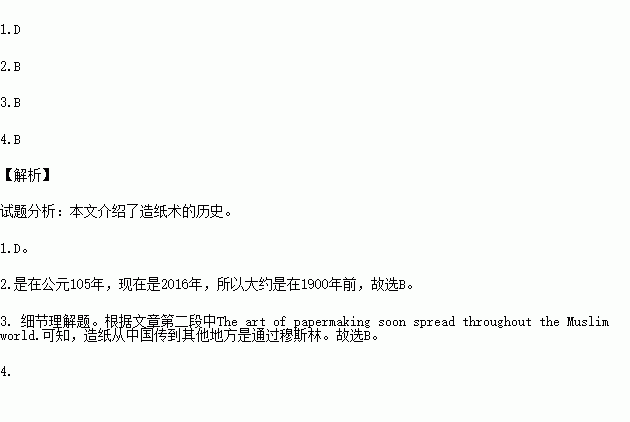题目内容
The Chinese invented paper in 105 A. D. They mixed the bark of a tree and rags (破布) with water, put a screen into the mixture, and lifted out a thin piece of wet paper. They dried the paper in the sun.
The Chinese kept their secret of how to make paper until a war with Muslims in the ninth century. The art of papermaking soon spread throughout the Muslim world.
The Mayan Indians in Central America and Pacific Islanders also discovered how to make paper, but their knowledge never spread to the rest of the world.
For centuries, all paper was made by hand. Rags were the main material. Then a French scientist discovered that people could make paper from wood, too. Finally, in the eighteenth century, a Frenchman invented a machine to make paper from wood.
1.Who discovered how to make paper?
A. The Chinese.B. The Pacific Islanders.
C. The Mayan Indians.D. All of the above.
2.When did the Chinese invent paper according to the passage?
A. About 1,800 years ago.
B. About 1,900 years ago.
C. About 2,000 years ago.
D. About 2,100 years ago.
3.How was papermaking introduced into the rest of the world from China?
A. Through wars.
B. Through the Muslims.
C. Through the Mayan Indians.
D. Through the Pacific Islanders.
4.Which of the following is the best title for this passage?
A. The Invention of Paper.
B. The History of Papermaking.
C. Different Ways of Making Paper.
D. The Invention of a Papermaking Machine.
 阅读快车系列答案
阅读快车系列答案
